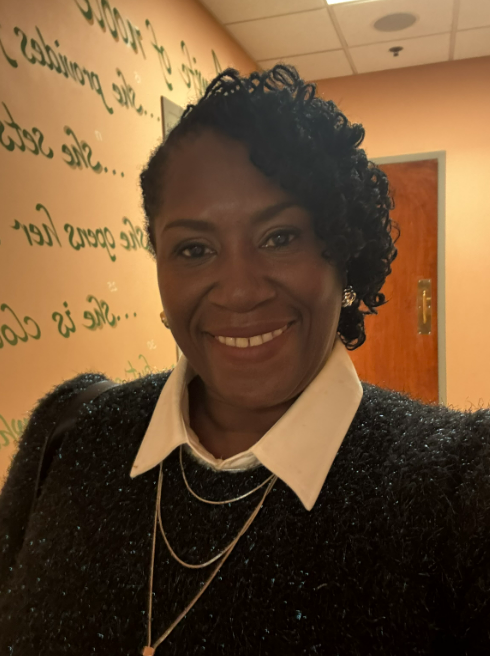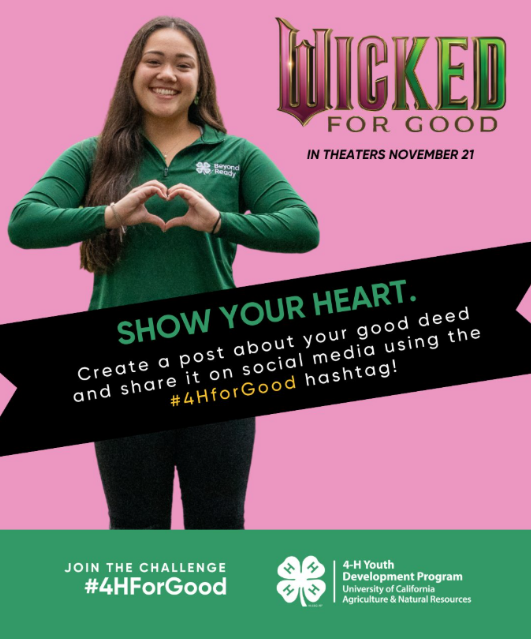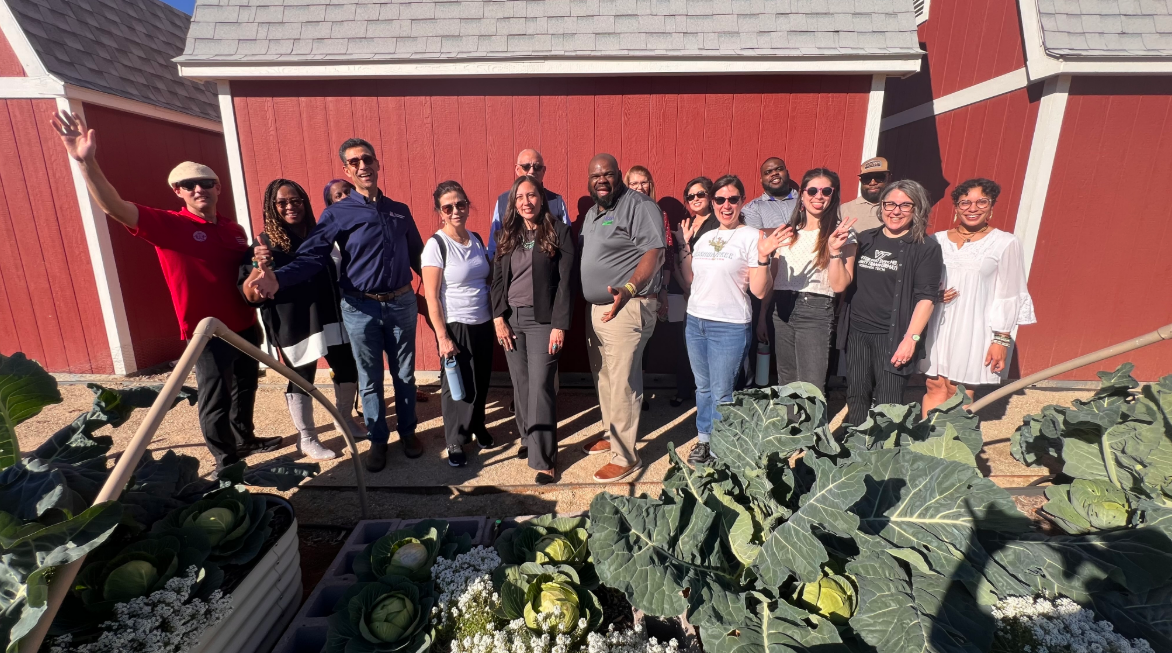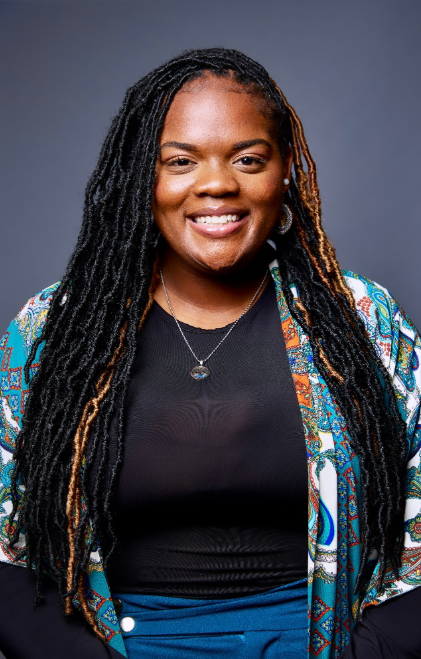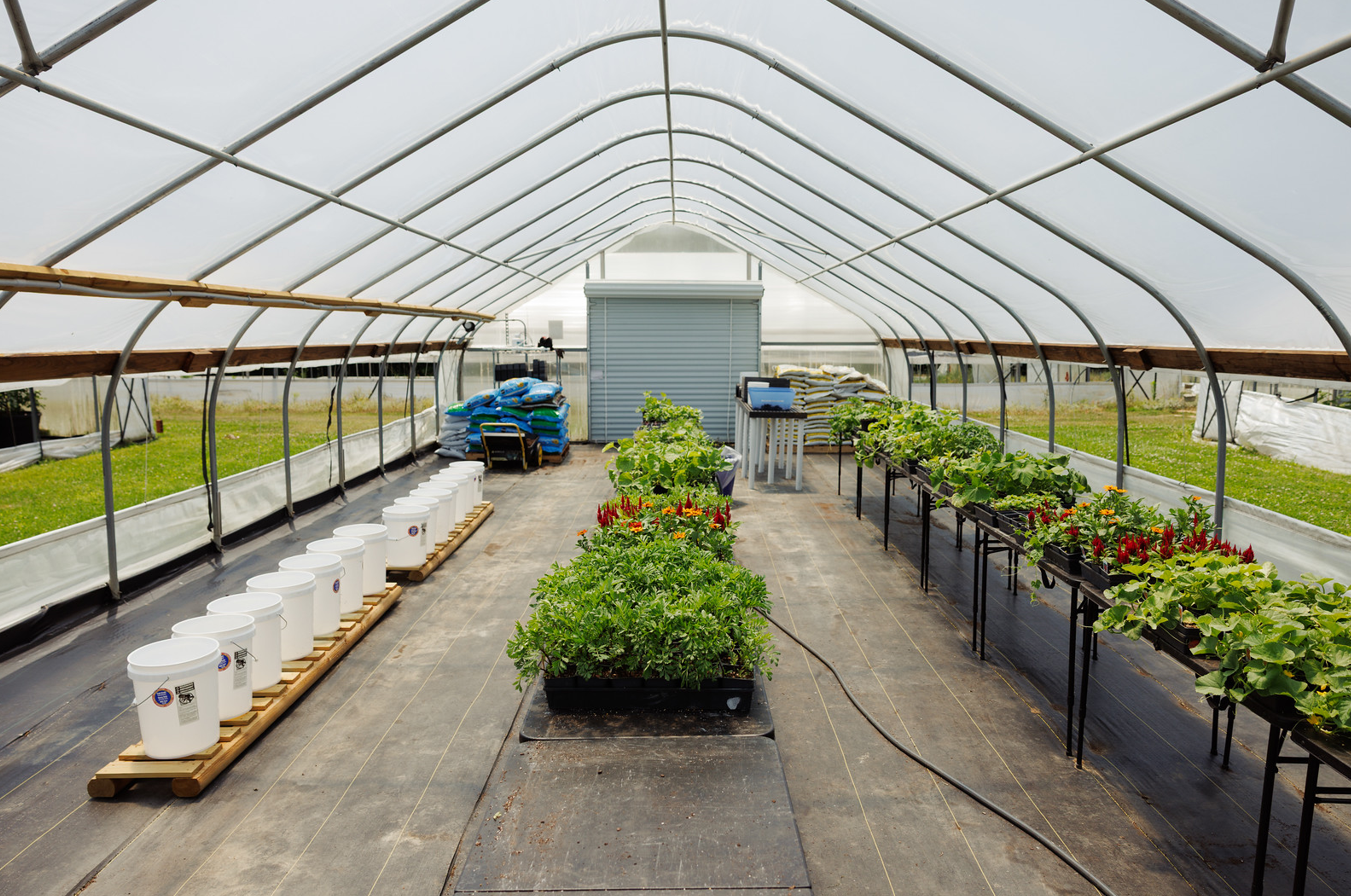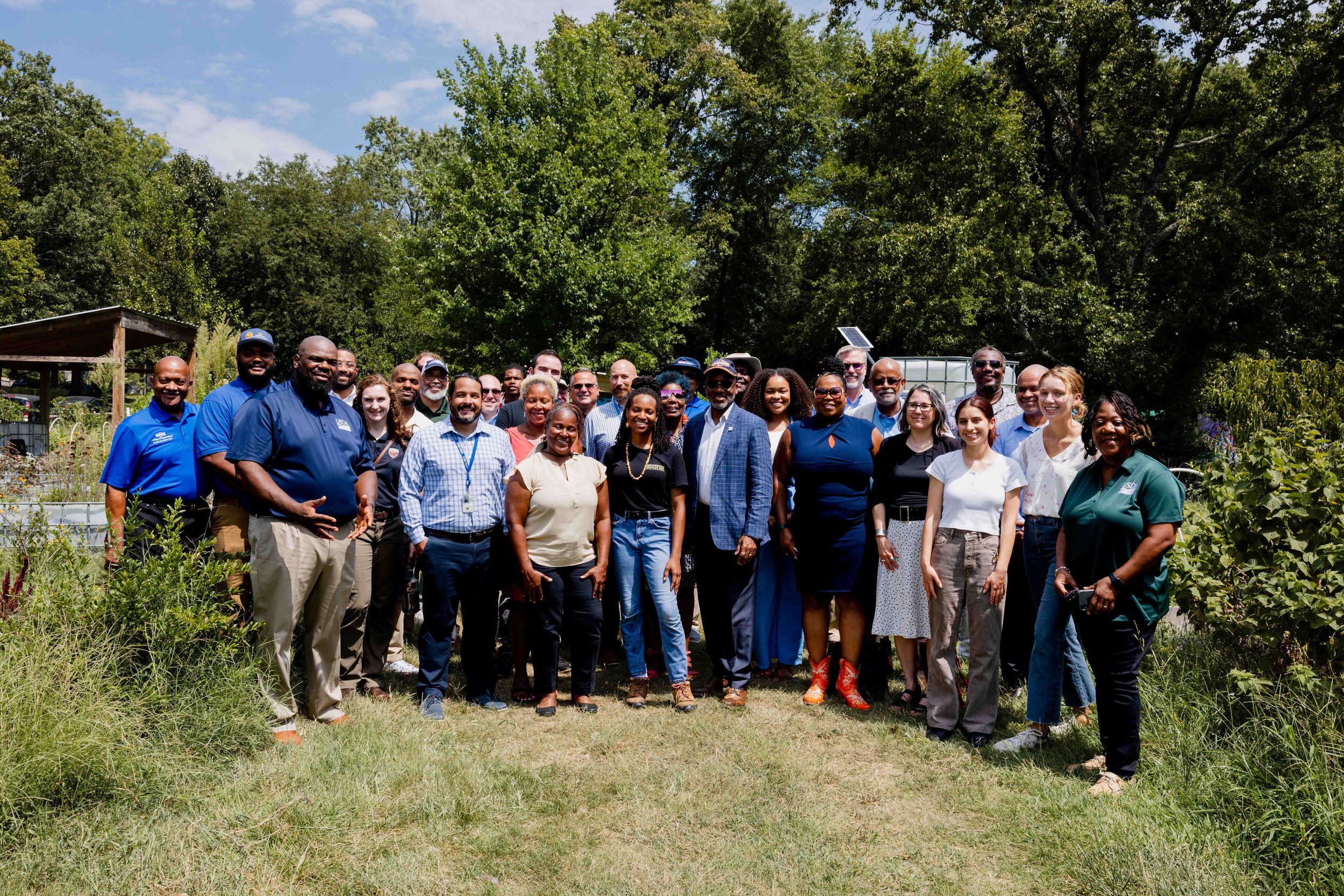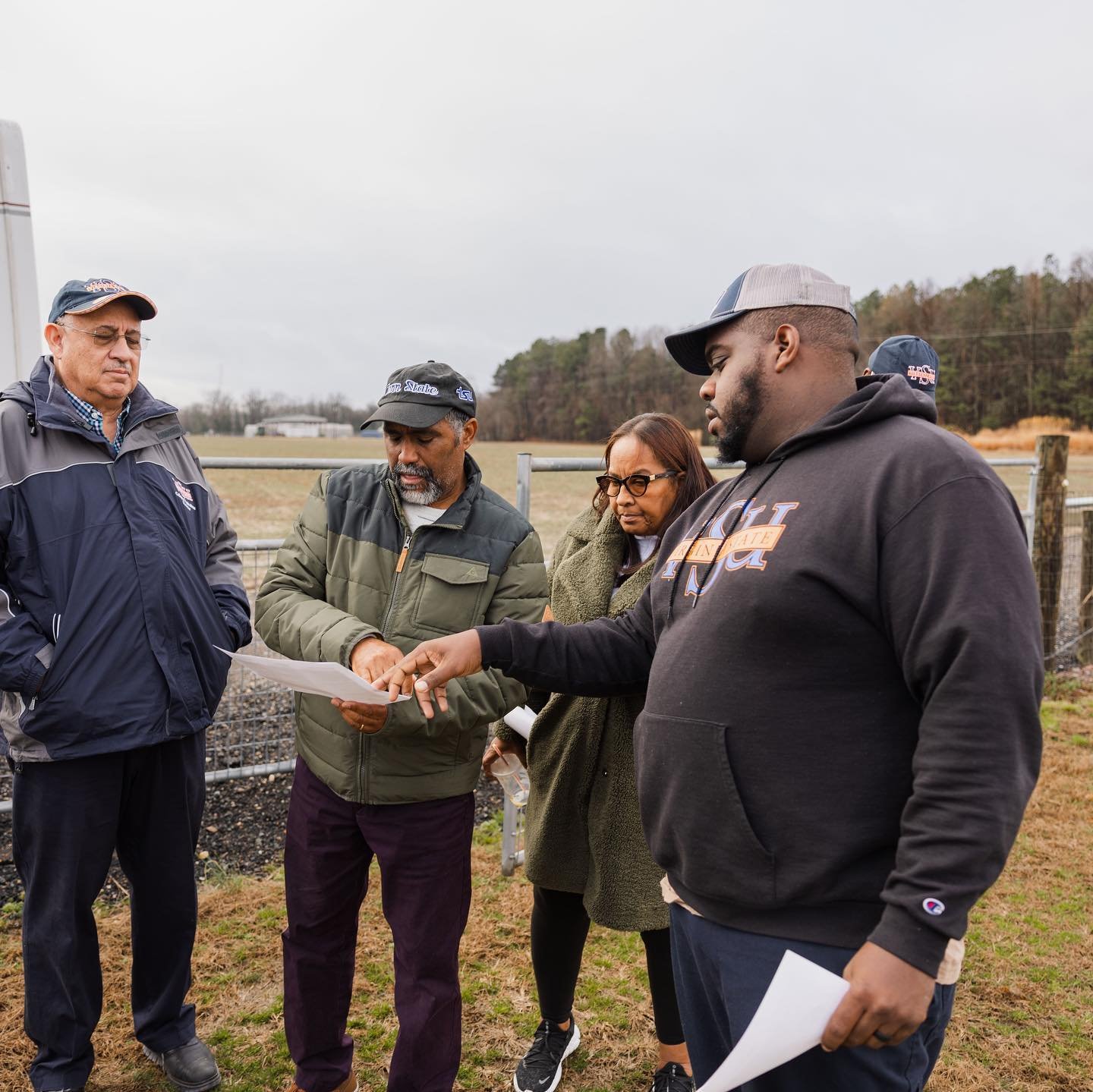Dr. Arifah Goodwin is a newer face in Virginia Cooperative Extension at Virginia State University (VSU-CE). She joined the team last fall as a Community Resource Development Extension Specialist and has stepped into her role with energy and a commitment to advancing community viability. She places special emphasis on entrepreneurship, workforce readiness and small business sustainability, and has multiple programs and initiatives already in the works to help solve pressing challenges facing communities today.
Dr. Goodwin's professional journey has centered work that embodies Cooperative Extension's mission: the intersection of education, research and real-world impact. She holds a Doctorate in Educational Administration and Supervision and has developed and led programs to create access, opportunity and sustainable growth for individuals and communities across all her previous positions. Whether through academic institutions or community-based initiatives, her work has emphasized solutions-driven approaches that equip people with practical tools for advancement. Dr. Goodwin founded initiatives such as the Woman Align Women's Expo, a platform dedicated to leadership development, personal growth and empowerment. She developed and coordinated professional programs as Assistant Director of Employee Relations, including the Career Ambassadors Summer Pilot Program, and led large-scale quarterly career expos that served both university students and the broader community.
Beyond formal institutional roles, Dr. Goodwin spent over two decades engaged in community service, designing empowerment events focused on financial literacy, entrepreneurship, goal setting and personal development. Across each initiative, she translated knowledge into actionable information. This sustained community engagement ultimately drew her to Virginia Cooperative Extension (VCE), where applied research and education are at the core of every program.
National 4-H Week launched an innovative campaign that asked 4-H teens to create ripples of good deeds in their communities. Called the "Wicked for Good 4-H campaign," this effort ran from October 9 to November 21, when the movie "Wicked: for Good" hit theaters. The campaign moved youth to be a spark of kindness and do "Wickedly good" acts throughout Virginia by helping others, giving back to their communities, and honoring the people who helped them in their journeys. As stories flooded social media of teens sharing their good deeds and heart hands with the hashtag #4HForGood, youth inspired their peers to do wickedly good things, themselves.
The results showed the great work of 4-H'ers all across Virginia. Nelson County teens led junior club meetings, and short videos highlighted acts of kindness like teens crafting flowers to give to others, and a student making her teacher's day by handing her a handwritten note that said "have a great day on purpose." In VSU's home city of Petersburg, the Petersburg High School Jr. ROTC put on reflective vests and picked up trash along their adopted street, assembled toiletry care bags to donate to a nursing home, and conducted a winter coat drive. Batallion S5 Captain James said, "We're doing this coat drive to give back to the community, so people have warm apparel for the upcoming fall and winter." Each video reflected youth leadership and civic engagement, with the Heart and Hand of the 4-H motto at the center of each effort to make positive differences.
The Extension Horticulture Program at Virginia State University (VSU) transitioning a 10-acre field plot on VSU’s Randolph Farm to an organic field, which opens possibilities for future applied research projects in organic production and new opportunities for Virginia growers to learn about organic production.
“Organic agriculture is the fastest growing sector in U.S. agriculture,” says Dr. Gu, who previously conducted organic research through Extension in Missouri and North Carolina. “Organic food sales in the United States broke $60 billion in 2022 and are projected to reach $114.15 billion by 2032. Organic production is highly suitable for small farms, and often yields higher profits than conventional produce.” However, Virginia ranks only 23rd among U.S. states for organic production, pointing to an opportunity to increase organic production to meet growing market demand.
Still, organic producers in Virginia face challenges. Producing organic crops is labor-intensive, and growers must contend with climate challenges, soil health and potential pests. On top of the challenges of growing organic food, managing an organic operation involves more paperwork, stricter regulations and maintaining certification by adhering to organic practices and scheduling annual inspections.
The Virginia Cooperative Extension Small Farm Outreach Program (SFOP) at Virginia State University (VSU) hosted the annual Small Farm Outreach Conference in Norfolk, Virginia, on Thursday, October 16, and Friday, October 17, 2025. This year, VSU’s SFOP, which provides year-round support, outreach and learning opportunities for small and innovative farmers for production management, financial and risk management, marketing, USDA assistance programs and more, partnered with the Minority Landowners Magazine in honor of their 20th anniversary. Together, they hosted guest speakers and provided educational tours and breakout sessions for farmers, ranchers, and rural and urban landowners, for two days of networking, celebration and education designed to help grow their farming enterprises.
Across the farming and food production landscape, urban farming is often excluded from the agriculture conversation. Urban growers are frequently ineligible for many federal programs that are designed for more rural or larger farming operations. Until recently, efforts to address this issue were localized. In 2023, Virginia State University (VSU) secured $4 million in grant funding, primarily from the United States Department of Agriculture (USDA) 's Farm Service Agency (FSA) to make a consolidated effort to connect farmers to nationwide services and programs offered through FSA, and understand the needs of, and suggest policies and programs that could benefit, small and innovative producers. Called the National Urban Ag Initiative , or NUag for short, this effort intends to help more urban producers use finance, education, research and outreach resources that would benefit their operations. NUag is now in full swing with 27 pilot cities and Native tribes, under the leadership of Virginia State's Small Farm Outreach Program and partnering institutions, Virginia Tech's Center for Food Systemns and Community Transformation, Cornell Cooperative Extension, and the Jackson, Mississippi-based organization To Improve Mississippi Economics (T.I.M.E.).
Sweet potatoes are a popular food across the United States and the world. The United States Department of Agriculture (USDA) reports that American consumption of sweet potatoes has almost doubled since the late 1990s, and the U.S.' annual value of sweet potato exports grew from $14 million to $187 million between 2001 and 2021. Sweet potatoes are packed with nutrients and fiber and have an established place in cultural and traditional dishes, healthy lifestyles and a variety of diets. This flexible, resilient crop has low input requirements and can grow in sandy soils and small spaces, as long as it receives plenty of sunlight. While neighboring state North Carolina is the leading producer for the United States' massive sweet potato market, Virginia producers have an opportunity to meet growing local demand. As the sweet potato industry in Virginia evolves, Virginia Cooperative Extension (VCE) at Virginia State University (VSU) works to put knowledge into action to help commercial, small-scale and backyard growers learn to produce, manage and market sweet potatoes.
In the evolving landscape of youth development, few programs have merged education, agriculture and leadership quite as powerfully as Harvest Heroes, an initiative led by Virginia State University (VSU) Cooperative Extension. Through the vision and dedication of educators like Nicole Swinson, the program has emerged as a transformative tool for reconnecting youth with the agricultural roots that sustain our world.
A Vision Rooted in Passion
Nicole Swinson is a passionate Extension educator and youth program specialist who wholeheartedly believes in the power of agricultural literacy and hands-on learning to transform young lives. She is committed to ensuring that every young person, no matter their background, has the opportunity to discover where their food comes from, understand the science behind it and imagine themselves as leaders in agriculture’s future. With years of experience blending education and community service, Nicole inspires youth to see agriculture as more than a career, but a way to build confidence, resilience and a sense of purpose. She encourages young people to engage actively, embrace their cultural roots, and step into leadership roles. These values are at the heart of the Harvest Heroes program, where passion meets empowerment to grow the next generation of changemakers.
At Virginia State University's (VSU) College of Agriculture (COA), "Greater Grows Here" is more than a slogan. It’s an ethos that permeates the exceptional work of students, faculty and staff, and a reflection of the college's commitment to helping students, research efforts, Cooperative Extension work, and communities grow and thrive. COA has seen growth and change in its leaders recently. In the first six months of 2025, COA saw its dean and subsequent interim dean take different roles that offered new leadership opportunities. In August, former Deputy Secretary of Agriculture, Dr. Jewel Bronaugh, will return to the college where she once served as dean from 2011 to 2015. Until then, Dr. Janine P. Woods has assumed yet another leadership role as acting dean of the College of Agriculture to provide steady, servant leadership during a time of change.
For 123 years, 4-H has helped America’s youth grow and learn through hands-on experiences. As one of the most well-known Extension programs, 4-H brings the bold purpose to “empower young people with the skills to become confident, responsible and engaged citizens…all guided by the principles of ‘Head, Heart, Hands and Health.’” 4-H helps foster positive youth development and can leave a lasting impact on participants. Recent Virginia State University (VSU) graduate Ms. Desmyn Owens learned she could impact her community and has carried her 4-H experiences into her career. Earlier this summer, she was hired as the 4-H Extension agent for Virginia Beach, Virginia, where she is using her knowledge and leadership skills to impact the next generations of 4-H youth.
The city of Petersburg, Virginia, is what’s known as a “food desert,” which is a community with at least a 20% poverty rate, and where about 1/3 of residents live more than one mile from the nearest grocery store in an urban area, according to the U.S. Department of Agriculture (USDA). In food deserts, residents have limited access to affordable, nutritious foods. Living in a food desert impacts families’ food security and increases risks of long-term health conditions like diabetes and heart disease.
While home food production can help alleviate food insecurity, having limited or no outdoor space is a significant barrier. Many Petersburg residents have this capacity challenge for growing food, but that doesn’t mean home food production is off the table entirely. At Virginia State University (VSU), small farm marketing and agribusiness extension specialist and professor Dr. Theresa Nartea is exploring ways to increase local food sovereignty by bringing traditional companion planting methods into small spaces. Food sovereignty emphasizes local, sustainable production that allows communities and individuals to define their food needs and systems and grow healthy and culturally relevant foods.
On Tuesday, March 18, Virginia State University’s College of Agriculture (COA) hosted its 3rd annual AgFest to celebrate National Ag Day’s theme of “Together We Grow.” Community members, vendors and VSU students, faculty and staff came together to showcase agriculture’s integrated connections. “AgFest is a powerful reminder of how agriculture connects us all—across generations, communities and industries,” said Erica Shambley, director of marketing and communications for COA. “This year’s turnout truly embodied the spirit of ‘Together We Grow,’ as students, educators, farmers and community members came together to celebrate the important role agriculture plays in our everyday lives.” This year’s celebration was also the largest, with almost 400 visitors who registered in advance including over 100 K-12 students, plus many more who joined the event day-of.
Virginia State University (VSU) collaborates with a wide range of external organizations, including businesses, state agencies, and community groups. However, its most foundational partnership is with Virginia Tech through Virginia Cooperative Extension (VCE), established in 1914. As part of a state-mandated collaboration, VSU and VT combine their expertise and resources to support the wellbeing of Virginians across the Commonwealth.
Dr. Woods is a familiar face across not just Virginia Cooperative Extension but the national Extension system. She holds several leadership positions in associations that connect her to Extension professionals across the United States, and brings a passion for forming internal and external relationships and partnerships that strengthen the work of Extension. One way her connections quickly recognize her, including Virginia governor Glenn Youngkin, is by her signature style: boots.
The boots, Dr. Woods explains, were originally a compromise with herself when her doctor advised her to shelve her high heels. She found boots straddle the line between sharp, professional attire and practical footwear for fieldwork. Dr. Woods says she'll never forget incidentally finding what would become her new look at an 1890 mini land grant conference in College Station, Texas. "I tagged along with a colleague, and we went boot shopping. We were joking about what type of boot to get, and I found not one pair but two that I really liked!" she says. "They're high quality and very comfortable. It was a Goldilocks situation, and it kind of became my thing." Around VSU's College of Agriculture, an administrative assistant started calling her "Dr. Boots." Now, students have adopted the moniker, too. Dr. Woods recently participated in a career fair fashion show featuring professional attire and her stylish boots. "It's fashion meets function and a little razzle-dazzle," she says.
Much like finding her signature style, Dr. Woods learned about what would become her career focus by seizing a golden opportunity. Years ago, while visiting a friend who worked for Extension at North Carolina A&T, Dr. Woods met Dr. Ray McKinnie, who would become Dr. Woods' mentor. "I just sat to the side of his desk and said, 'Hey, who are you? What do you do?'" Dr. Woods recalls. "I learned what he did in his role and what Extension does." Dr. McKinnie suggested a graduate extension internship for her at the University of Kentucky, and her subsequent Peace Corps experience in Trinidad and Tobago working directly with coffee farmers solidified her interest in extension work. She pursued a PhD at the University of Florida, focusing on ag education and communications. After graduation, she joined North Carolina A&T State University as an agribusiness and marketing specialist and eventually came to work as the associate extension administrator for Cooperative Extension at VSU for Dr. McKinnie, who was the college dean at the time.
It's the time of year when we experience chillier months and longer nights. In nature, winter is a time to rest and wait for the eruption of life and color that comes with spring. For many people, winter can be a time of high stress. The pressure of holidays with travel or family tension, a never-ending parade of germs coming home with your kids from school and feelings of loneliness are all too common experiences. This winter season, VSU-Virginia Cooperative Extension is introducing a locally-grown idea for a DIY wellness activity to combat stress and take an intentional moment to slow down.
In 2024, Dr. Theresa Nartea, the Extension Specialist for Marketing and Agribusiness at VSU-VCE, began a new agri-therapy program named VSU Floralpy®, inspired by the words "floral" and "therapy." Dr. Nartea launched this fresh approach at VSU's Randolph Farm with the goal of improving the integrated well-being of the community. Participants learned how being immersed in a field of fragrant flowers and herbs enhances well-being. Dr. Nartea said, "I noticed during field days how participants would walk into the blooming flower fields, and instantly their faces lit up. They would touch the leaves and smell the flowers; you could instantly see people relax and smile just being one with nature." During several VSU field days, participants could cut their own flowers and herbs to make a personal bouquet to take home. This Floralpy® process of creating a personal aromatic bouquet straight out of nature instead of a store is a fun way to reduce stress. "I believe making your own wellness bouquet is a form of focused meditation," says Dr. Nartea. Local growers also learned about the possibility of adding this valuable activity to their on-farm offerings.
Collaborative partnerships are a cornerstone of Virginia Cooperative Extension (VCE) at Virginia State University (VSU)’s mission to help people put scientific knowledge to work through learning experiences that their well-being. In 2024, VSU is proud to celebrate successful collaborations across programming areas in community development, 4H, human nutrition and health and food, ag systems and agroforestry.
VSU’s Associate Specialist of Community Development Ms. Novita Epps collaborates with the Concerned Citizens of Ettrick, one of VSU’s surrounding communities. This group is dedicated to addressing local issues, and promoting the cultural, spiritual, economic, educational, physical and social well-being of the Ettrick community.
25,000 miles along the East Coast from Virginia all the way to Florida: this is the distance Virginia State University (VSU)’s Mobile Education Unit (MEU) has traveled since its first road trip just two years ago. What started as a grant-funded opportunity from agencies like the U.S. Department of Agriculture, the Virginia Department of Agriculture, Farm Bureau and more has taken on a life of its own with over 10 sponsors, most of which are Virginia-based. The MEU is a state-of-the-art trailer with dynamic, interactive exhibits that showcase Virginia’s rich agriculture and forestry industries. While the MEU team is already accomplishing the unit’s mission of agriculture education outreach, there’s even more on the horizon.
At Virginia State University (VSU), the College of Agriculture is committed to the integrated well-being of communities, and agricultural innovation and sustainability. The natural intersection of these is at a farmer’s market, where local producers and the community come together to celebrate and strengthen local food systems. This November, VSU and the Virginia Farmers Market Association (VAFMA) partnered to host the first Mid-Atlantic Farmers Market Conference in Richmond, Virginia, to bring farmers, market managers, agriculture policy makers and community partners together to share passion and ideas for small and local farms, increasing food access, healthy communities and farmers markets.
For over 30 years, Sheree Press and Bernadette “Bee” Darrow have run a program aimed at preventing child abuse and neglect. February of 2025 will mark 15 years of their program, Family Focus, coming under the umbrella of Virginia Cooperative Extension (VCE) thanks in part to some out-of-the-box thinking from Virginia State University (VSU)’s Special Assistant to the Associate Administrator Doris Heath, who at the time was a local extension agent familiar with Family Focus. Previously, the program was a part of the Virginia Mental Health System’s Prevention services when funding issues forced a temporary closure of the program. After years of struggling to grow and applying for grants acting as financial band-aids for their critical work, Press and Darrow are driving program growth to expand their impact. “We’re at the moment of growth for the first time in 14 years,” says Darrow. “We joined the VCE Human Development Team and the VSU Extension Program Team during the pandemic. We’ve been uplifted and elevated as people and a program more in the last four years than ever.”
The goal of establishing these institutions was to develop practical solutions to problems, as the approach to university level education in America continued to evolve from a narrow liberal arts education towards the diverse fields available today. At the time, these institutions were for white male students. It wasn’t until 1882 that the Virginia Normal and Collegiate Institute, now called Virginia State University (VSU), was founded for the purpose of providing higher education opportunities for African Americans.
Urban agriculture is critical to supporting and strengthening local food systems, especially in areas where residents are historically underserved and have limited access to food. An urban farm provides the community with economic opportunities, green space, and nutritious fresh food. However, urban farmers may struggle to access the necessary resources to support or grow their operations. Virginia State University's (VSU) Small Farm Outreach Program (SFOP) is finding solutions to this through the new National Urban Ag Initiative.
Virginia State University (VSU) will conduct research investigating tomato growth and nutraceutical qualities within brackish water (5 ppt) aquaponic systems. Dr. Nicholas Romano, VSU’s Aquaculture Extension Specialist, along with Mr. Joshua Dusci, VSU’s Indoor Agriculture Extension Associate, received a grant for $38,000 from the Virginia Department of Consumer Services to develop the project in collaboration with VSU’s Virginia Cooperative Extension counterpart, Virginia Tech (VT).
First thing in the morning, you can find Rachel Lawmaster caring for rabbits and working with greenhouse plants. The rest of her day might include more farm work, office work, or hosting a weekly program at the Petersburg Boys and Girls Club to introduce students to agriculture (her favorite day of the week). Lawmaster is Virginia State University (VSU)'s Program Assistant for the Urban Agriculture program, and she combines passion, commitment and a broad array of outreach efforts to impact her community positively.
When Second Baptist Church (SBC) in Richmond, Virginia, grappled with the issue of stormwater runoff from its extensive roof, it collaborated with the Chesapeake Bay Foundation to develop an efficient solution. But with the challenge of managing the collected water emerging, specialists from Virginia State University's Cooperative Extension (VSU-VCE) and assistants from the Small Farm Outreach Program (SFOP) saw an opportunity: start an urban garden.
Virginia Cooperative Extension's Small Farm Outreach Program (SFOP), housed under Virginia State University College of Agriculture, secured close to $4 million in grants and sub-awards to tackle food insecurity. The initiative will connect urban farmers with U.S. Department of Agriculture’s (USDA) Farm Service Agency (FSA) representatives and resources.
As the Commonwealth of Virginia welcomes increasing numbers of residents of diverse ethnicities, the Hispanic population in particular continues to soar—and so do their needs for Extension services.
This population now comprises nearly 11% of the state's total population, a significant increase from 8% a decade ago. Of this population, there are those who want to start their own farm enterprises. To assist them, the Small Farm Outreach Program (SFOP), part of the Virginia Cooperative Extension program at Virginia State University, relies heavily on Leonel Castillo, its Hispanic outreach coordinator.
After 30 successful years in aquaculture at VSU Randolph Farm, with its 57 research and instruction ponds, fish hatchery, greenhouse-based tanks and automated fish processing facility, Virginia Cooperative Extension at Virginia State University is reassessing how best to address the current needs of producers in the growing industry. As one of two land-grant universities in the commonwealth, VSU-VCE advises limited-resource producers about aquaculture opportunities and best practices.
Virginia Cooperative Extension at Virginia State University helps small-scale sheep farmers across Virginia reduce expenses, increase profits and provide exceptional products with innovative, evidence-based strategies. With demand for lamb outstripping domestic supply, local, small-scale farmers and consumers can benefit from systems developed by Extension and the Agricultural Research Station at VSU.
“It’s one of my greatest highlights for all the years I’ve been in agriculture,” said Summers, who has been in agriculture her entire life.
Born and raised on her family’s farm in Guilford County, N.C., a recognized Century Farm that has been in her family since 1878, she learned the value of working the land at an early age—along with its challenges—from a long line of tobacco farmers.
Small Farm Outreach Program, part of Virginia State University College of Agriculture and Virginia Cooperative Extension empowers small-scale, limited-resource, socially disadvantaged, minority and veteran farmers and ranchers to own, operate and sustain their independent enterprises through education, information and assistance. SFOP serves Virginia and parts of Maryland and North Carolina. It is making a big impact, especially on small-scale black farmers.

